How Aotearoa-New Zealand is building successful partnerships with First Peoples
12 April 2021
● News and media
ANZSOG’s recent Proud Partnerships in Place First Peoples public administration four-day virtual conference in February/March 2021 brought together public servants and academics to listen to Indigenous speakers outlining the need for better partnerships, and telling stories of what worked to lift results for Indigenous communities.
Māori speakers were strongly represented at the conference, and one of the strong themes of the conference was the different path taken by Aotearoa-New Zealand in building partnerships with Māori. This path is based on the formal recognition provided by the Treaty of Waitangi (signed in 1840) and the long-term efforts to create economically independent iwi (tribes), an understanding that real partnerships go beyond consultation or co-design, and recognition that iwi have the in-depth knowledge of their communities which can be the missing piece in the policy puzzle.
While many partnerships are still evolving and many Māori remain socially disadvantaged, the focus on building partnerships – from areas as diverse as policing to environmental protection, are based on recognising Māori sovereignty and using local knowledge to deliver better results for iwi.
In the conference’s first session, Aotearoa-New Zealand Foreign Minister Nanaia Mahuta delivered an opening address on behalf of Prime Minister Ardern and said that, in New Zealand, “partnerships needed to embrace the bi-cultural values that characterise who we are”.
“When it comes to social and environmental challenges, to get different results we need to have different conversations, and we need to involve the Indigenous voice in this”.
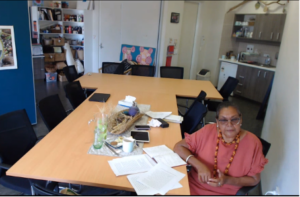
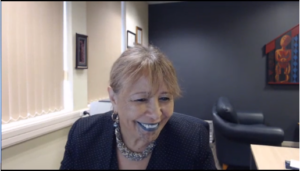
Using Treaty as a foundation for equal partnerships
The Treaty of Waitangi was signed 181 years ago by representatives of the British Crown and Māori chiefs, promising Māori sovereignty over their own affairs and rights to retain land. While the Treaty’s provisions were ignored for much of New Zealand’s history, since 1975 the Treaty has been used to establish partnerships and redress grievances, and since 1985, to allow the Waitangi Tribunal to investigate treaty breaches back to 1840.
New Zealand Judge Caren Fox said that the Treaty of Waitangi provided a foundation to recognise pre-existing Māori sovereignty, and to build partnerships on.
“The importance of the Treaty of Waitangi was that it granted a guaranteed right to exercise autonomy, sovereign government, or self-determination, and recognised pre-existing sovereignty. This is fundamental to how partnerships are formed,” she said.
She said that New Zealand’s courts had defined the principle of partnerships: “mutual respect and entering into dialogue where respective authorities overlap, the Treaty signifies a partnership between races with reciprocal obligations and advantages”.
Justice Sir Joe Williams, the first Māori judge of the New Zealand Supreme Court outlined how New Zealand had used the Treaty to establish partnerships in practice between the Crown and iwi.
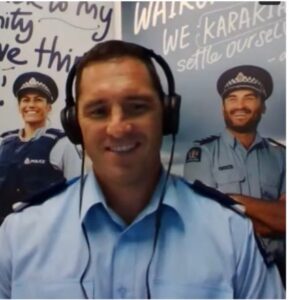
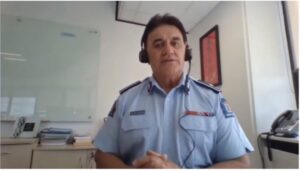
“In 1985 the Waitangi Tribunal was given retrospective jurisdiction to deal with the process of loss through breaches of the treaty. This began the idea of the Treaty as a partnership, speaking to what it symbolised, the vibe of the document rather than the text,” he said.
“Here we emphasise that our partnership is between formal equals but acknowledge the power disparity between Māori and British in 1840 and today.
“Most New Zealanders like the idea that Māori culture is part of New Zealand culture, and reject the idea of Little Britain in the southern hemisphere. Most Māori accept, even celebrate, that separate identity is expressed within mainstream institutions rather than remaining in separate Māori institutions at the outskirts of national life.
The decisions of the Waitangi Tribunal have given control of land and resources to iwi, some have used this to develop a strong economic base, which gives them more independence and leverage in negotiations with governments.
“Partnership is a word that denotes sharing power and responsibility. Partnership is not consultation before government makes a decision, it’s not indigenising the public sector – partnership is a mechanism that will operate at constitutional and political levels to recognise that there is a pre-existing polity and legal order with which the state must engage, for mutual advantage.”
“It’s a mechanism that helps to move on from the past on Indigenous terms, not assimilating white terms, and that responds rationally to issues and challenges that both sides share responsibility for addressing.”
“The idea is that the Crown’s representatives will stop seeing the Māori perspective as other and alien but as something that is normal and combines understandings that will make sense for that space.
He said that, as well as greater use of te Reo (Māori language) in courts, and greater representation by iwi in court proceedings, partnerships were being built across a range of areas.
These included a partnership of joint management over the Whanganui river, which included recognition of the river as a legal entity, and new child welfare legislation which requires the government to enter into partnerships with iwi and report to parliament on their progress to meet their partnership obligations under the Treaty.
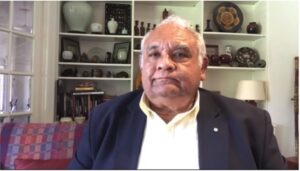
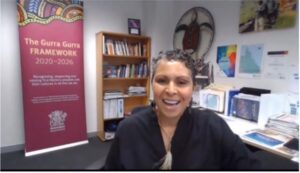
Environmental partnerships in practice
Lil Anderson, Chief Executive Te Arawhiti/Office for Maori Crown Relations, said that New Zealand was now at a stage where it could look to the future, and partnerships based on mutual trust and respect.
“We have seen a growth in the ‘Māori economy,’ this is not all from treaty settlements but the growth in some iwi has been phenomenal and includes long-term investments and the ability to provide scholarships for people to attend university. We want people to be able to work at home for the good of their iwi,” she said.
“We have found the Treaty framework helpful but we have also been able to look at partnerships outside the Treaty space, i.e. with Māori organisations that manage large tracts of land.”
One of the main areas of partnership is around the environment and incorporating iwi and Māori understanding of people’s responsibilities to nature and the management of natural resources.
Shane Graham, CEO, Ngati Rārua and former Head of Social Sciences and Māori Studies at NMIT said that Māori believe “we are water and water is us, and we have an obligation to that water”.
He said that Māori concerns around environmental damage to rivers needed to be addressed by partnerships, not just by legislation.
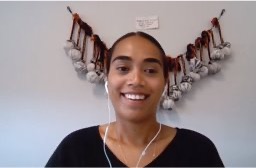
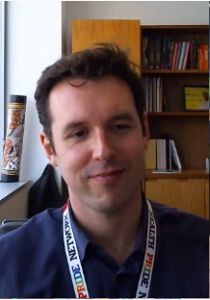
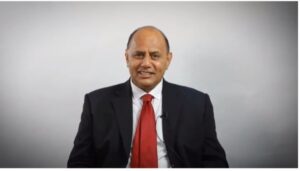
“You can’t treat water as separate from the rest of the environment and we should not be segmenting something that is interconnected. We have seen disastrous decline in our waterways and our seabeds, and if we keep doing the same thing – we are going to get the same results,” he said.
“Legislation is not going to help in the long-term, having QCs sitting around a table may address departmental requirements, but we need to move past that and build real strength and trusting relationships. First Peoples need to take cultural control.”
He said that partnerships were not the same as community engagement and were required across the policy spectrum. He said that ‘people in uniform’ such as the military and police understood this because they were used to working in partnerships.
“You need to understand the context of the relationship you are trying to build. Understand their history, think about what you are there for, and what are you looking for?
“For non-Indigenous people who want to help, the best thing you can do, if you are in a meeting without Māori, is ask that crucial question ‘where are iwi on this matter?’.”
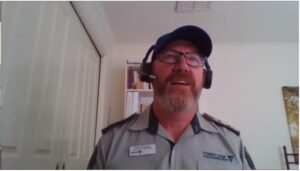
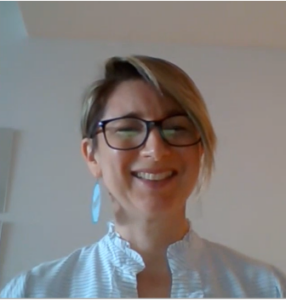
Using culture and community
Sadly, Māori still comprise more than half of New Zealand’s prison population, are more likely to be removed from their families as children, and in general are less healthy, less educated and have poorer housing and employment than the New Zealand average.
However, in many areas, relations between government and Māori are moving to a new model based on Māori confidence and economic renewal, which recognises the strength of Māori culture and the knowledge held by iwi.
Dame Naida Glavish DNZM, a strong advocate for Māori language and former Māori Party MP, spoke of the importance of maintaining culture and the importance of recognising the impact of its loss on Māori.
She said that governments needed to trust Māori more, and to move towards co-deciding, rather than having Māori report to non-Māori.
“Māori used to report to non-Māori, but over time this has changed. Māori began to report to Māori in hospitals in the community, to ensure those services served communities better,” she said.
“Yes – Māori need to be involved in the co-design but we also need to co-decide.”
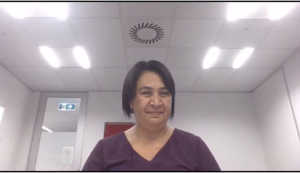
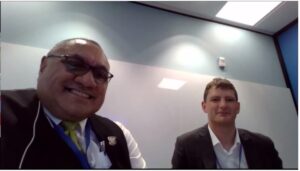
Te Ao Kapa, CEO at Te Kaha O Te Rangatahi Indigenous Youth Hub, South Auckland, New Zealand is a young Maori leader working to use culture and the arts to reduce suicide rates among urban Māori.
She said that governments needed to give communities freedom to create programs that ‘fit our way’ and recognise existing relationships.
“Governments need to encourage community spaces and public spaces, and do more research into the community, to determine who they can build partnerships with. They need to look to young people not just as future leaders but as current leaders.”
Some of the most important partnerships have been with police, as communities look to reduce offending rates and divert young people from the justice system.
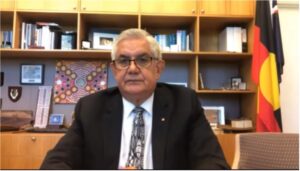
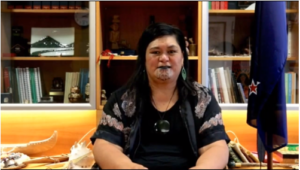
Policing with communities to reduce reoffending
Wally Haumaha, New Zealand Deputy Police Commissioner Iwi, is one of the highest-ranking Māori police officers and has been one of the leaders of a shift in New Zealand’s policing culture, to one where police form partnerships with communities to reduce reoffending.
“Over the years many reports were written around bias, discrimination and the unfair justice system. There was a responsibility that came with being Māori as well as a cop, I wanted to change the culture, so we became an organisation that did not get that criticism from Māori people,” he said.
“In the 1990s Māori leaders came to address issues of high rates of reoffending, we were second-highest Indigenous group incarcerated in the western world. This raised questions of how do we build a police service that our people have confidence in? How do we meet our responsibilities under the Treaty? How do we engage Māori people as participants to work this out? This was a significant task, and it was not going to be a journey for the faint hearted!”
He said that a partnership in the Bay of Plenty region, where four iwi signed an agreement with police, became the template that was used around the country.
“Building structure across the organisation is important – consent of policing, and consent of Māori leaders sitting at your side and advising the Police commanders is significant. We had to have a plan and a strategy in place.”
He said that a key to the new approach was looking at broader social issues and working with communities to develop alternatives for people going into the justice system.
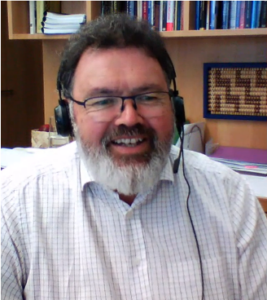
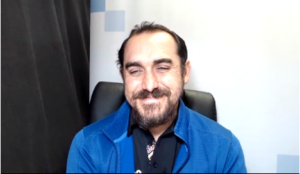
“If police made better decisions at the front end, prosecution would not be the only solution, and we would be looking at the diversion or prevention techniques to prevent that person from going into the system. You also need to give Judges some options around alternative pathways as well.
“Some would say ‘if they have committed an offence, they need to go to court and be prosecuted. We needed to shift how we looked at the context for that, i.e., why is a person shoplifting? How do you bring that broader touch of humanity into your work?”
“Social issues are not just for Māori, and diversion is not just for them, but the principles are based on a Māori cultural framework and understanding.
Hata Wilson, Director Tamaiti Whangai Services, has worked on the issue from the iwi perspective and has overseen the operation of panels to address reoffending and offending by Māori.
“We’ve been able to grow to the point where we get 400 referrals per year for the panels and we have a strong cultural focus to our work, we think about the justice principle and what that means,” he said.
“There are opportunities for iwi to provide a vehicle for addressing some harm but in a culturally-appropriate way. The idea is that people can come in with a family member so they can talk about the issues with their family and their whanau (wider family) and have the opportunity to connect people to more holistic services that are available.
“We come to a panel process for healing not punishment. We want to have a conversation about rights and wrongs but the important thing is what you can do about it. This is a cross-cultural principle, and what is good for Māori is good for all people.”
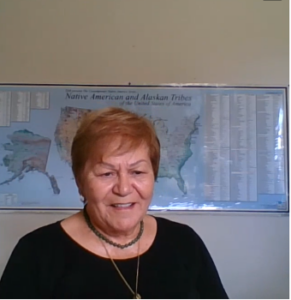
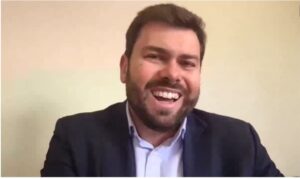
For a full summary of the conference, visit the conference page on the ANZSOG website.
